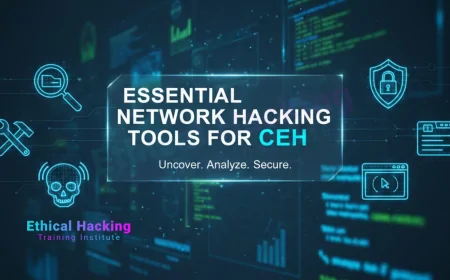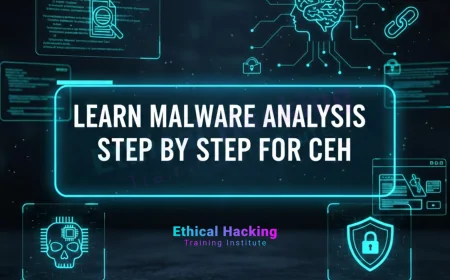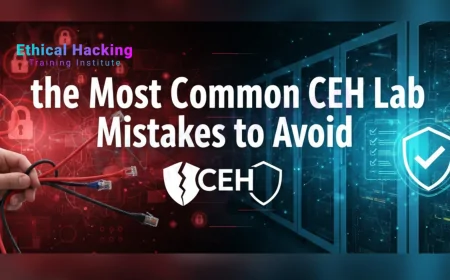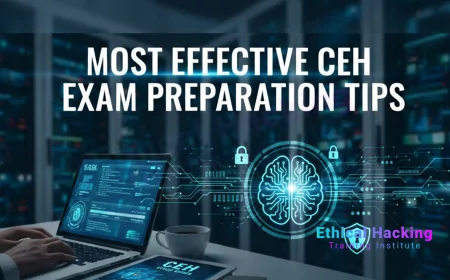Ethical Hacker Classes: Where to Take Them and What to Expect | Learn to Hack Ethically: Where to Train and What You’ll Learn
Discover where to take ethical hacker classes, course types, skills taught, certifications offered, and how to start your ethical hacking career.
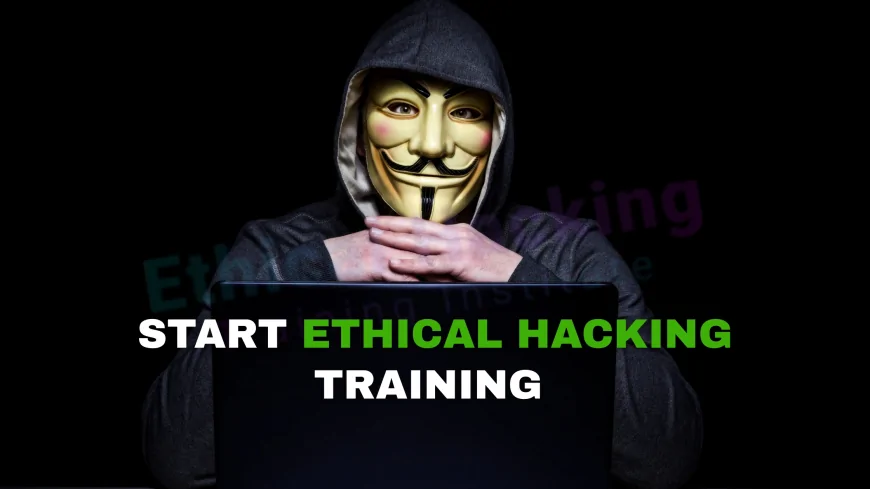
Table of Contents
- Introduction
- Why Ethical Hacking Classes Matter
- Types of Classes
- Where to Take Classes
- What You’ll Learn
- Core Skills and Tools
- What to Expect in Classes
- Duration & Format
- Costs & Budgeting
- Certifications You Can Earn
- Career Outcomes
- Tips to Choose the Right Class
- Frequently Asked Questions
- Conclusion
Introduction
In an era when cyberattacks evolve daily, ethical hacker classes enable learners to defend systems by thinking like attackers—within legal and structured formats. This guide highlights where to find such classes and what to expect from them.
Why Ethical Hacking Classes Matter
Certified ethical hackers are essential for securing data, networks, and applications. Classes offer structured learning, access to simulated labs, mentorship, and industry-recognized certifications. As digital threats escalate, so does the need for knowledgeable and well-trained cybersecurity experts.
Types of Classes
Online Courses & Bootcamps – WebAsha Technologies
WebAsha Technologies offers a suite of online and hybrid ethical hacking courses, including their flagship **CEH v13 AI Bootcamp**, designed for both beginners and experienced professionals.
Available Formats
- CEH v13 AI Bootcamp: Combines ethical hacking fundamentals with AI-driven techniques via live online instruction and virtual labs :contentReference[oaicite:1]{index=1}.
- Weekend Classes: 2–3 sessions per weekend, tailored for working professionals, featuring CEH theory and hands-on labs :contentReference[oaicite:2]{index=2}.
- Hybrid Training: Live-streamed sessions combined with 24×7 cloud lab access for flexible learning from anywhere :contentReference[oaicite:3]{index=3}.
Why Choose WebAsha's Online Programs?
- EC‑Council Authorized: Official CEH curriculum with both theory and practical coverage :contentReference[oaicite:4]{index=4}.
- Hands‑On Virtual Labs: Real-time access to Kali Linux, Metasploit, Burp Suite, and AI-enabled cyber range :contentReference[oaicite:5]{index=5}.
- Expert Instructors: Trainers with over a decade of real-world cybersecurity experience :contentReference[oaicite:6]{index=6}.
- Placement Support: Resume building, mock interviews, and job assistance with MNCs like TCS, Wipro, and Infosys :contentReference[oaicite:7]{index=7}.
- Flexible Payment: EMI plans and competitively priced packages for online learners :contentReference[oaicite:8]{index=8}.
Course Highlights & Duration
- CEH v13 AI Training: 6–8 weeks – includes AI modules, theory, practical labs, and CEH exam voucher :contentReference[oaicite:9]{index=9}.
- Weekend Bootcamps: 3–4 weeks, ideal for professionals balancing work and training :contentReference[oaicite:10]{index=10}.
- Self-Paced Support: Recorded sessions and continuous doubt-clearing via chat/forums :contentReference[oaicite:11]{index=11}.
Ideal For...
- Working professionals seeking CEH certification with minimal disruption
- Freshers or career changers wanting structured learning + labs
- Tech enthusiasts aiming to integrate AI into ethical hacking workflows
Where to Take Classes
WebAsha Technologies is a **leading EC‑Council Authorized Training Partner** in Pune, offering both **online** and **in-person** CEH v13 AI-integrated classes with full lab access, flexible scheduling, and placement support.
Training Formats Available
- Classroom + Online Hybrid: Conducts simultaneous live and in‑person sessions, ideal for working professionals :contentReference[oaicite:1]{index=1}.
- Weekend & Weekday Batches: Flexible timings for full-time students and IT employees :contentReference[oaicite:2]{index=2}.
- Fast-track CEH Master Program: Covers both the CEH Theory and Practical in a comprehensive, lab-intensive syllabus :contentReference[oaicite:3]{index=3}.
Key Features
- Official EC‑Council curriculum (CEH v13 AI + Practical iLabs) :contentReference[oaicite:4]{index=4}.
- Access to full-day live cloud labs (Kali, iLabs cyber range) 24×7 :contentReference[oaicite:5]{index=5}.
- Small batch sizes for personalized instructor attention :contentReference[oaicite:6]{index=6}.
- Certified trainers with 5–10+ years of industry experience :contentReference[oaicite:7]{index=7}.
- Placement assistance, mock interviews, and internship guidance :contentReference[oaicite:8]{index=8}.
- Competitive pricing with EMI options and affordable lab fee structures :contentReference[oaicite:9]{index=9}.
Who Should Enroll?
- IT professionals and network engineers seeking CEH v13 with practical hands-on exposure.
- Freshers, students, and career changers aiming to build cybersecurity credentials.
- Individuals interested in pursuing EC‑Council’s CEH Theory and Practical certification.
Locations & Batches
Classes are conducted at WebAsha’s Pune campus with live online streaming across India and internationally. The CEH v13 AI training is scheduled monthly, with upcoming batches starting from:
- Jun 25, 2025 • 10–13 IST (Weekdays/Weekend)
- Jul 03, 2025 • 13–16 IST (Weekdays/Weekend)
- Jun 15, 2025 • 14–17 IST (Classroom + Online) :contentReference[oaicite:10]{index=10}.
Reach out to WebAsha Technologies at +91‑84858 47920 or +91‑80109 11256 to inquire about batch availability, fee structure, and demo sessions.
University Programs & Bootcamps
Some universities and top bootcamp providers, e.g. University of Colorado via Coursera or IIT-K at edX, offer ethical hacking modules as part of cybersecurity curricula :contentReference[oaicite:14]{index=14}.
What You’ll Learn
Core curriculum typically includes:
- Footprinting & reconnaissance
- Scanning & enumeration
- System hacking & privilege escalation
- Web application testing (SQLi, XSS)
- Wireless, IoT, cloud hacking
- Malware, social engineering, cryptography, report writing :contentReference[oaicite:15]{index=15}
Core Skills and Tools
- Linux command-line, networking fundamentals
- Tools: Nmap, Metasploit, Burp Suite, Wireshark, Kali Linux
- Soft skills: analytical thinking, report writing, ethical reporting guidelines
- AI-assisted reconnaissance and automation trends emerging in labs :contentReference[oaicite:16]{index=16}.
What to Expect in Classes
Expect a mix of:
- Lectures (video/text/live)
- Guided labs using virtual machines or cloud systems
- Quizzes and mock exams
- Peer discussion (forums, Slack, Discord)
- Capstone projects or continuous hack challenges
Duration & Format
Courses range from:
- Short workshops: 1–2 days (introductory)
- Bootcamps: 5–10 days intensive
- Self-paced: 1–4 months on average
- University programs: 3–6 months part-time
Costs & Budgeting
- Free-to-start platforms: free modules + paid labs
- Self-paced online: $30–$300 (Udemy/Coursera)
- Bootcamps and in-person: $500–$7,500 depending on provider and depth
- SANS premium bootcamps reach $6,000–7,500 :contentReference[oaicite:17]{index=17}
Certifications You Can Earn
- EC‑Council CEH (Certified Ethical Hacker)
- CompTIA PenTest+ / Security+
- OSCP (Offensive Security Certified Professional) – more technical :contentReference[oaicite:18]{index=18}
- GIAC certifications via SANS
- Entry-level certificates via Coursera, Udemy
Career Outcomes
Graduates can pursue roles such as:
- Ethical Hacker / Penetration Tester
- Security Analyst / SOC Engineer
- Vulnerability Assessor / Cybersecurity Consultant
Salaries typically range from ₹4–10 LPA (India) to $70K–$120K (U.S.) :contentReference[oaicite:19]{index=19}.
Tips to Choose the Right Class
- Verify instructor credentials and hands-on lab access
- Look for up-to-date syllabus—especially including IoT, cloud, AI trends
- Check for career support and exam vouchers
- Join trial days or access sample modules
- Read student reviews and success stories
Frequently Asked Questions
1. What is an ethical hacker class?
A course teaching hacking skills within legal bounds using labs, theory, and ethical standards.
2. Can beginners join?
Yes—many tailored beginner classes exist with no prerequisites.
3. Online vs classroom—what’s best?
Depends on preference: online for flexibility, in-person for hands-on guidance.
4. Are these classes legal?
Absolutely—as long as the training environment is authorized and contained.
5. How long do classes take?
From 1-day workshops to 6-month part-time courses.
6. Do they include certification?
Often include exam vouchers for CEH, PenTest+, or OSCP.
7. What tools will I learn?
Nmap, Metasploit, Wireshark, Kali Linux, Burp Suite, and Linux commands.
8. Will I do labs?
Yes—most classes provide virtual machines or cloud labs.
9. Are there free options?
Yes—platforms like Cybrary, Udemy sometimes offer free introductory content.
10. What is OSCP?
Advanced practical certification requiring real-world penetration testing :contentReference[oaicite:20]{index=20}.
11. Do I need prior IT background?
Helpful but not mandatory; many courses teach networking from scratch.
12. What careers follow?
Roles like Penetration Tester, SOC Analyst, Security Consultant.
13. Are classes expensive?
Range from free to $7,500+ depending on provider and depth.
14. How do I choose?
Check syllabus, reviews, lab access, instructor credentials, and job support.
15. Do I get a certificate of completion?
Yes—plus eligibility for professional certification exams.
16. Is job support included?
Many in-person and premium bootcamps offer placement assistance.
17. What is hybrid training?
Blends online lectures with scheduled in-person or virtual lab sessions.
18. How much do ethical hackers earn?
Salaries range from ₹4–10 LPA (India) to $70K–$120K+ globally :contentReference[oaicite:21]{index=21}.
19. Can classes cover AI and IoT?
Top courses include modern topics like cloud, IoT, and AI-driven hacking :contentReference[oaicite:22]{index=22}.
20. How to stay motivated?
Join peer forums, set goals, complete labs, and track your progress steadily.
Conclusion
Whether online or in-person, ethical hacker classes offer structured pathways into the cybersecurity profession. Choose a format and provider that matches your learning style, career goals, and budget. Prioritize hands-on labs, modern curriculum, and expert instructors. With consistent practice—plus a relevant certification—you’re equipped to launch a meaningful and well-paid career in ethical hacking.
What's Your Reaction?
 Like
0
Like
0
 Dislike
0
Dislike
0
 Love
0
Love
0
 Funny
0
Funny
0
 Angry
0
Angry
0
 Sad
0
Sad
0
 Wow
0
Wow
0






